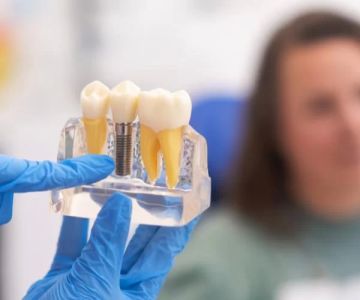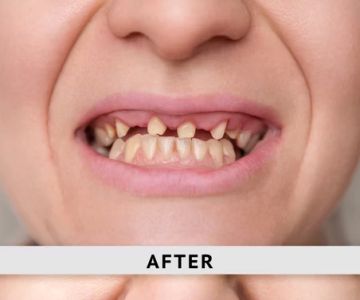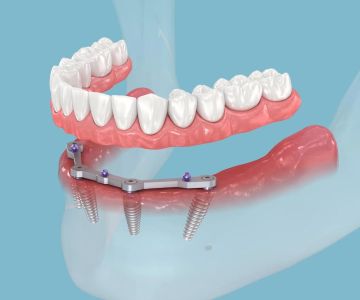Understanding Dental Implant Procedures: A Complete Guide
- What Are Dental Implants?
- Benefits of Dental Implants
- Dental Implant Procedure
- Recovery and Care
- Real-Life Examples
- Choosing the Right Dentist
- Next Steps
What Are Dental Implants?
Dental implants are a revolutionary solution for tooth replacement, offering a permanent and natural-looking alternative to dentures and bridges. Unlike traditional methods, dental implants involve the surgical placement of a titanium post into the jawbone, which acts as a sturdy foundation for a replacement tooth or bridge. This procedure not only restores the functionality of your teeth but also helps maintain the structure of your jawbone, preventing bone loss that often accompanies missing teeth.
Types of Dental Implants
There are primarily two types of dental implants: endosteal and subperiosteal. Endosteal implants are the most common and are placed directly into the jawbone. Subperiosteal implants, on the other hand, are positioned under the gum but above the jawbone and are typically used for patients who do not have sufficient bone height.
Who Is a Candidate?
Ideal candidates for dental implant procedures are individuals with healthy gums and sufficient bone density to support the implant. Age is not a strict factor; both younger and older adults can benefit from dental implants, provided they meet the necessary health criteria.
Benefits of Dental Implants
Dental implants offer numerous advantages over traditional tooth replacement methods. They provide enhanced stability, allowing patients to eat and speak with confidence. Additionally, implants help preserve the jawbone, preventing the sunken appearance that can occur with missing teeth. Aesthetically, dental implants mimic the appearance of natural teeth, ensuring a seamless and attractive smile.
Improved Oral Health
Unlike bridges, which require the alteration of adjacent healthy teeth, dental implants do not affect neighboring teeth. This preserves the integrity of your natural teeth and promotes better oral health.
Longevity and Durability
With proper care, dental implants can last a lifetime. Their durability makes them a cost-effective solution in the long run, despite the higher initial investment compared to other tooth replacement options.
Dental Implant Procedure
The dental implant procedure is typically divided into several stages, ensuring the best possible outcome for each patient.
Initial Consultation and Assessment
During the initial consultation, your dentist will evaluate your oral health, discuss your medical history, and determine if dental implants are the right option for you. This may involve X-rays or 3D imaging to assess bone density and structure.
Surgical Placement of the Implant
Once deemed a suitable candidate, the implant is surgically placed into the jawbone. This procedure is usually performed under local anesthesia, ensuring minimal discomfort. After placement, a healing period of several months allows the implant to integrate with the bone, a process known as osseointegration.
Attachment of the Abutment and Crown
After successful integration, an abutment is attached to the implant, which will hold the custom-made crown. The final step involves placing the crown, designed to match the color and shape of your natural teeth, completing the restoration process.
Recovery and Care
Recovery from dental implant surgery is generally smooth, with most patients experiencing mild discomfort and swelling for a few days post-procedure. Maintaining good oral hygiene is crucial to ensure the longevity of your implants. Regular brushing, flossing, and dental check-ups will help keep your implants in optimal condition.
Post-Surgery Care Tips
- Follow your dentist’s instructions carefully
- Avoid hard or sticky foods during the healing period
- Use prescribed medications to manage pain and prevent infection
- Attend all follow-up appointments to monitor healing
Long-Term Maintenance
Long-term maintenance involves regular dental visits to ensure that the implants remain secure and that your overall oral health is maintained. Healthy lifestyle choices, such as not smoking and maintaining a balanced diet, can also contribute to the longevity of your dental implants.
Real-Life Examples
Consider the story of Sarah, a 45-year-old marketing executive who struggled with missing teeth for years. After trying dentures, she found them uncomfortable and inconvenient. Opting for dental implant procedures at Dentistry Toothtruth, Sarah regained her confidence with a natural-looking smile that allowed her to eat her favorite foods without worry.
Another example is John, a 60-year-old retiree who experienced bone loss due to missing teeth. Dental implants not only restored his smile but also preserved his jawbone, preventing the sunken facial appearance he was concerned about. These real-life stories highlight the transformative impact of dental implant procedures on individuals’ lives.
Choosing the Right Dentist
Selecting a qualified and experienced dentist is crucial for the success of your dental implant procedures. Look for professionals who specialize in implantology and have a proven track record of successful implant placements. Reading reviews, asking for referrals, and scheduling consultations can help you make an informed decision.
Questions to Ask Your Dentist
- What is your experience with dental implants?
- Can you provide before-and-after photos of previous patients?
- What is the success rate of your implant procedures?
- How do you handle complications if they arise?
At Dentistry Toothtruth, our team of skilled professionals is dedicated to providing personalized care and ensuring the best possible outcomes for our patients.
Next Steps
If you’re considering dental implant procedures, the first step is to schedule a consultation with a trusted dental provider. Understanding the process, benefits, and what to expect can help you make an informed decision towards achieving a healthier, more confident smile.
Ready to take the next step? Visit Dentistry Toothtruth today to learn more about how dental implants can transform your oral health and enhance your quality of life.







 Westgate Dental Arts
Westgate Dental Arts Coventry Family Dental
Coventry Family Dental Familia Dental
Familia Dental Dr. Daniel S. Fife, DDS
Dr. Daniel S. Fife, DDS Dentistry At Suburban Square: Michael I. Wollock, DMD
Dentistry At Suburban Square: Michael I. Wollock, DMD Comfort Care Dental
Comfort Care Dental The Importance of Oral Health Education During Pregnancy for a Healthy Pregnancy
The Importance of Oral Health Education During Pregnancy for a Healthy Pregnancy Why Skipping Dental Checkups Can Lead to Bigger Oral Health Problems
Why Skipping Dental Checkups Can Lead to Bigger Oral Health Problems Advantages of Porcelain Dental Restorations
Advantages of Porcelain Dental Restorations Best Tips for Brushing Your Teeth Properly for Healthy Gums: Essential Techniques for Oral Health
Best Tips for Brushing Your Teeth Properly for Healthy Gums: Essential Techniques for Oral Health How Can Diabetes Cause Tooth and Gum Problems? Preventing and Managing Oral Health Issues
How Can Diabetes Cause Tooth and Gum Problems? Preventing and Managing Oral Health Issues Healthy Habits for Promoting Good Oral Health and Hygiene: Tips for a Healthy Smile
Healthy Habits for Promoting Good Oral Health and Hygiene: Tips for a Healthy Smile